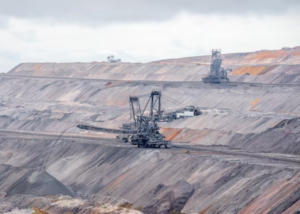#EU #US #TradeDeal #ForcedLabour #CriticalMinerals #InflationReductionAct #LabourStandards #SustainableMining
The European Union is on the cusp of a groundbreaking movement that could culminate in a significant trade deal with the United States, centered on the pivotal issue of critical minerals necessary for propelling the green and digital economies forward. Valdis Dombrovskis, the EU trade chief, highlighted the potential for this agreement to be reached, especially in light of new EU regulations aimed at banning products made through forced labour. This development not only underscores the EU’s commitment to human rights and ethical labor practices but also opens up new avenues for collaboration with the United States.
The envisioned deal seeks to ensure that critical minerals – such as cobalt, graphite, lithium, manganese, and nickel – mined or processed in Europe are eligible for U.S. clean vehicle tax incentives under the Inflation Reduction Act (IRA). This would be a significant step, given these minerals’ crucial role in the transition towards more sustainable and technologically advanced economies.
Despite the anticipation, negotiations hit a stumbling block during the recent two-day Trade and Technology Council, primarily due to divergent views on labor standards, including the U.S.’s proposal for site inspections to verify compliance. Nonetheless, Dombrovskis remains optimistic about reaching an agreement within the year, citing a strong alignment between the EU and the U.S. on the principles of labor rights and the eradication of forced labour.
Under the upcoming EU law, which is set to be enforced this year, a stringent framework will be established to crack down on forced labour both within and outside the European bloc. This will entail comprehensive investigations by the European Commission and national authorities, with concrete actions to withdraw implicated products from the market if the allegations are substantiated.
While the potential minerals deal might not represent a significant financial transaction, given the limited scope of the EU’s mining and processing capabilities, its symbolic value cannot be overstated. Aligning closer with the United States on supply chain issues, the EU aims to enhance its stature akin to that of Canada and Mexico, sending a strong signal to the industry about its commitment to ethical and sustainable trade practices.







Comments are closed.